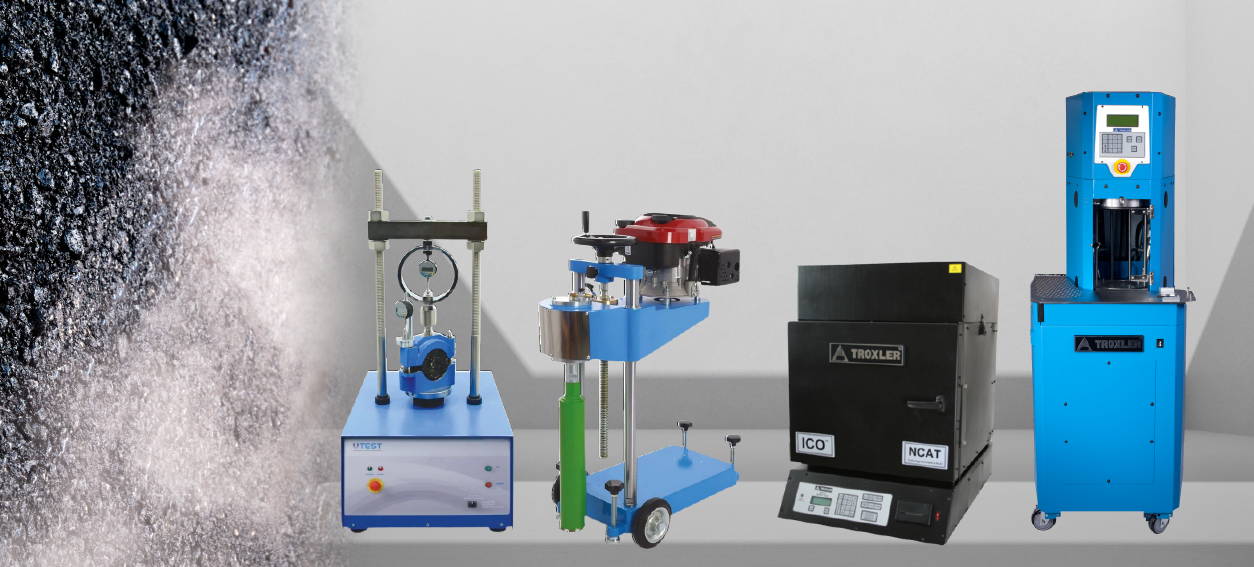No Products in the Cart

Asphalt, the go-to construction material for road paving, faces increasingly high demands due to rising traffic volumes and heavier axle loads. Asphalt testing equipment plays a vital role in helping engineers meet these increasing demands and adheres to industry standards set by ASTM and AASHTO. This equipment ensures the durability and performance of asphalt pavements by evaluating factors such as resistance to moisture, temperature, fatigue and deformation as well as workability and durability.
Measur offers asphalt testing equipment that meets ASTM and AASHTO standards for sampling, mixing, compaction, and strength testing. The equipment includes tools for binder testing, such as viscosity measurement and softening point determination. Pavement quality testing is conducted to verify the properties of asphalt in the field, including temperature monitoring, core drilling for density assessment, and permeability evaluation.
Asphalt Mix Design Equipment is ideal for activities such as sampling, mixing, compaction, and strength testing. The mix design process begins by selecting and proportioning aggregates, asphalt bitumen, and additives. Various methods, such as Marshall and Superpave design methods are employed to create mixes suitable for specific pavement loads and environmental conditions. These lab-formulated blends undergo testing to evaluate their durability, resistance to cracking and rutting, temperature performance, and other essential properties.
Accurate representative samples for testing are produced using the quartermaster asphalt sample divider. Asphalt content furnaces and extractors measure the asphalt binder content in the mixes.
Asphalt Binder Testing is conducted to measure binder properties that directly impact the performance of hot mix asphalt. The type of binder or binder additives used are typically determined based on traffic volume and local weather and temperature. The binder testing process involves assessing viscosity, aging effects, ductility, penetration resistance, and softening point. To evaluate the effects of short-term and long-term aging, rolling thin film ovens, pressure aging vessels, and vacuum degassing ovens are utilized.
Binder viscosity is measured using viscometers, rotational viscometers, and dynamic shear rheometers. Shear strength, ductility, and flow of binder samples are assessed using ductility testers, penetrometers, and bending beam rheometers. The softening point of the binder is established through ring and ball testing. Marshall and Superpave compaction are used to prepare samples for testing based on the estimated traffic loads by altering the number of hammer blows or gyrations. The samples can then be retested to identify or confirm the mixes properties.
Pavement Quality Testing ensures that the asphalt used in the pavement possesses the same properties as the approved laboratory mix design. These tests are conducted either in the field during construction or after the installation of the paving mat. Core drilling machines and diamond core bits are utilized to obtain in-place asphalt samples for evaluating density, thickness, and other pertinent properties. Asphalt permeameters are used to characterize the movement of water through the pavement. Benkelman beam devices provide data on the deflection.